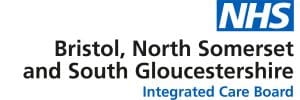Waiting well: Improving support for children who are awaiting assessment
As the Neurodiversity Programme’s work progresses, waiting lists for autism and ADHD assessment are continuing to grow. This creates a risk of harm for any neurodivergent child or young person whose needs are not being identified and met in a timely way.
In response, we have explored measures that could be implemented quickly, to improve support for children and families while they are waiting for an assessment. These measures wouldn’t replace formal assessments. However given the long waiting times, they would provide an early indication of a child or young person’s needs, and help families and professionals to identify support strategies that could be put in place right away, without needing an assessment or diagnosis.
Ideas were developed through a series of workshops in early 2024, held with local parent carers and other programme partners. Our approach has three key features:
- Profiling tool: A new neurodiversity profiling tool would be introduced to provide early identification of a child’s needs and help families access support without requiring a formal diagnosis. It would be based on an approach already used successfully in other parts of the country and would be administered, in schools and other settings, by the professionals who work most closely with a child.
- Advice and guidance: Children and families awaiting an assessment would be helped to access local services offering support and guidance. This is already done to some extent but the support offered varies across our area. Our aim would be to provide a standard, approach across the Bristol, North Somerset and South Gloucestershire health and care system.
- Assessment and support for those most in need: Clinicians from the assessment service would visit schools to provide support and advice for children and young people with the highest needs, or whose needs are most urgent. This would help schools work with the assessment service to target support where it is needed most.
All parts of the model are underpinned by a commitment across health, care and education partners that formal diagnosis should not act as a barrier to accessing timely support.
Testing the new model
We are testing the model with a selected number of schools before making a decision on whether to roll it out across Bristol, North Somerset and South Gloucestershire. The pilot started in October 2024 and will run until May 2025.
During summer 2024, we worked with local schools to agree which would take part in the pilot. We included both primary and secondary schools and particularly those with the highest referral rates. Children who receive their education in other settings, including home schooling, were also included.
Schools approached families who are on the autism or ADHD waiting lists, to see if they would be willing to take part in the pilot. When considering who to approach, they focused particularly on children and young people who had been assessed by clinicians as having the highest level of needs, as well as those who have been waiting longest. They also ensured the sample is representative of their school population, including children from a range of backgrounds and ethnicities.
Families were not obliged to take part in the pilot. However we hope they will find it a valuable experience which will help them to develop a greater understanding of their child’s needs and how they can work with schools and other services to support them.
Participation in the pilot does not affect children’s eligibility for autism or ADHD assessment, or their position on the waiting list.
Neurodivergence early needs identification pilot: Q&A document (PDF)

